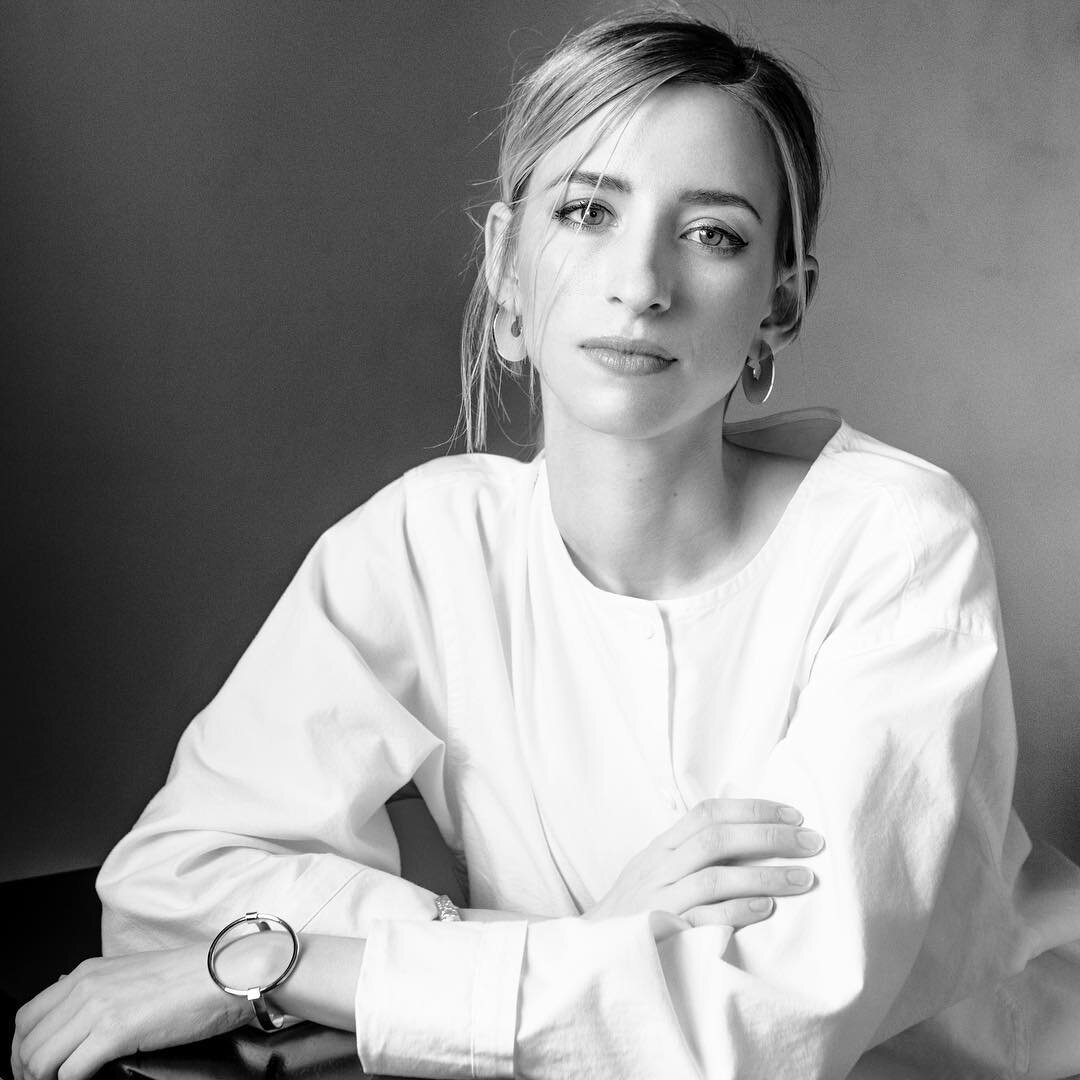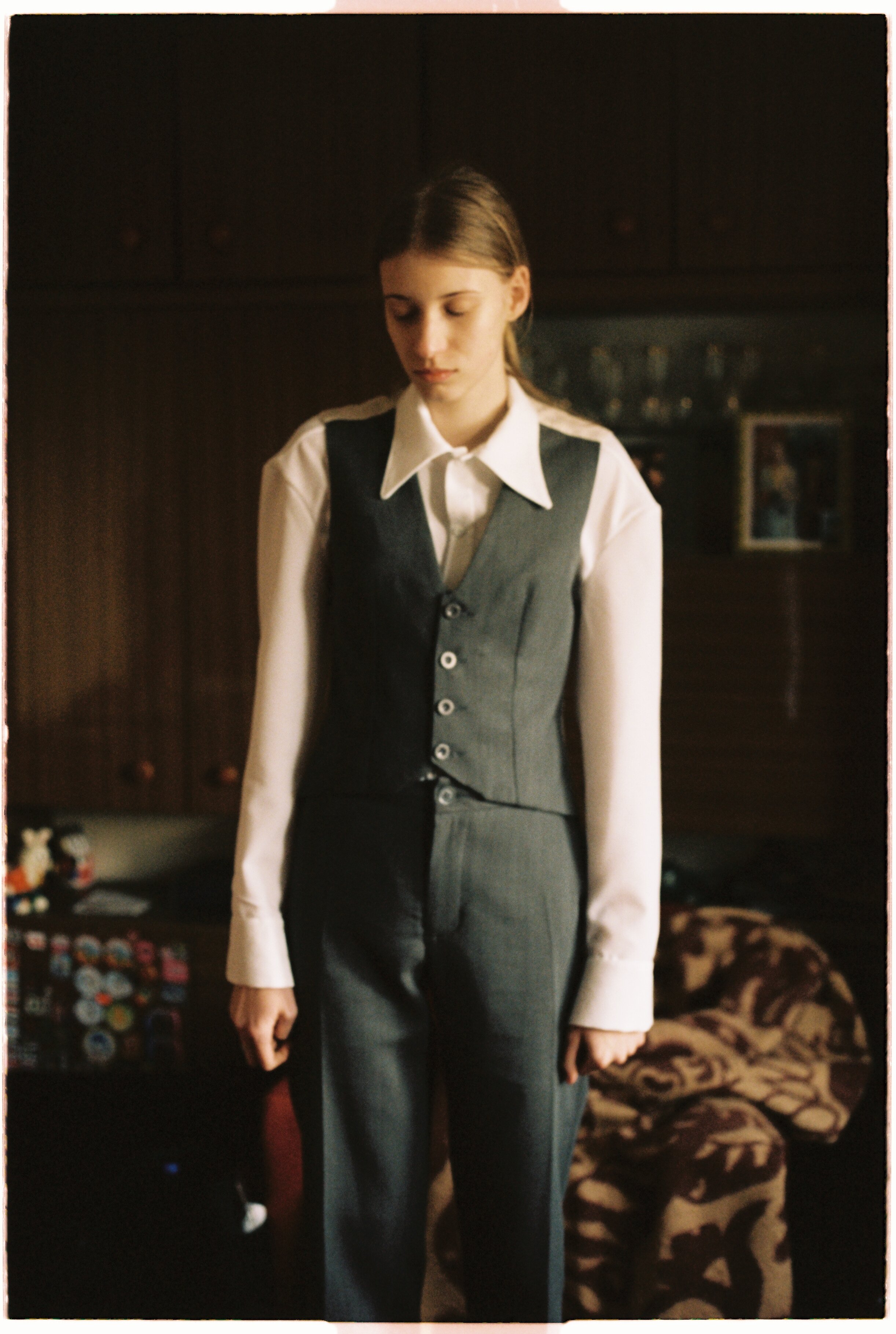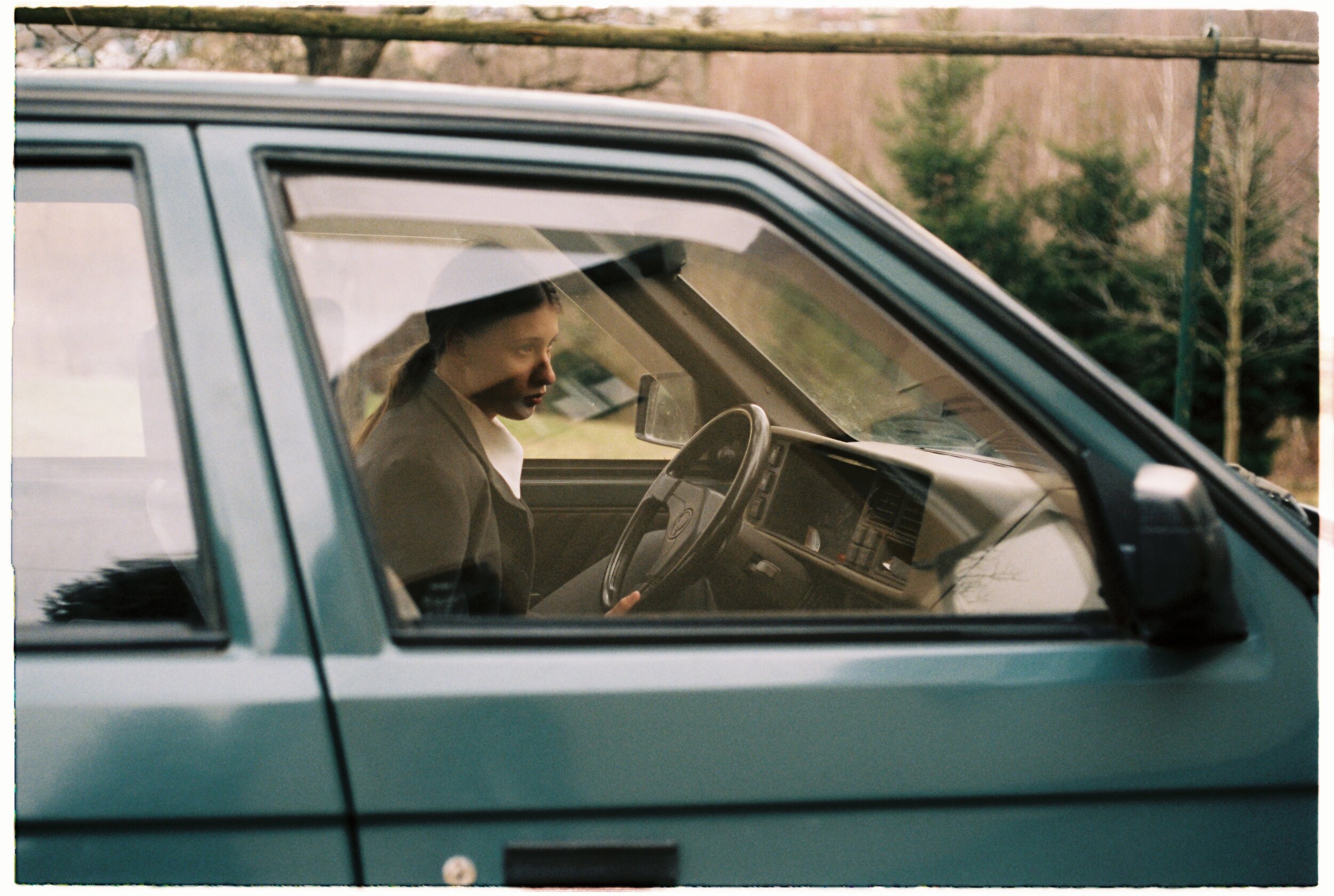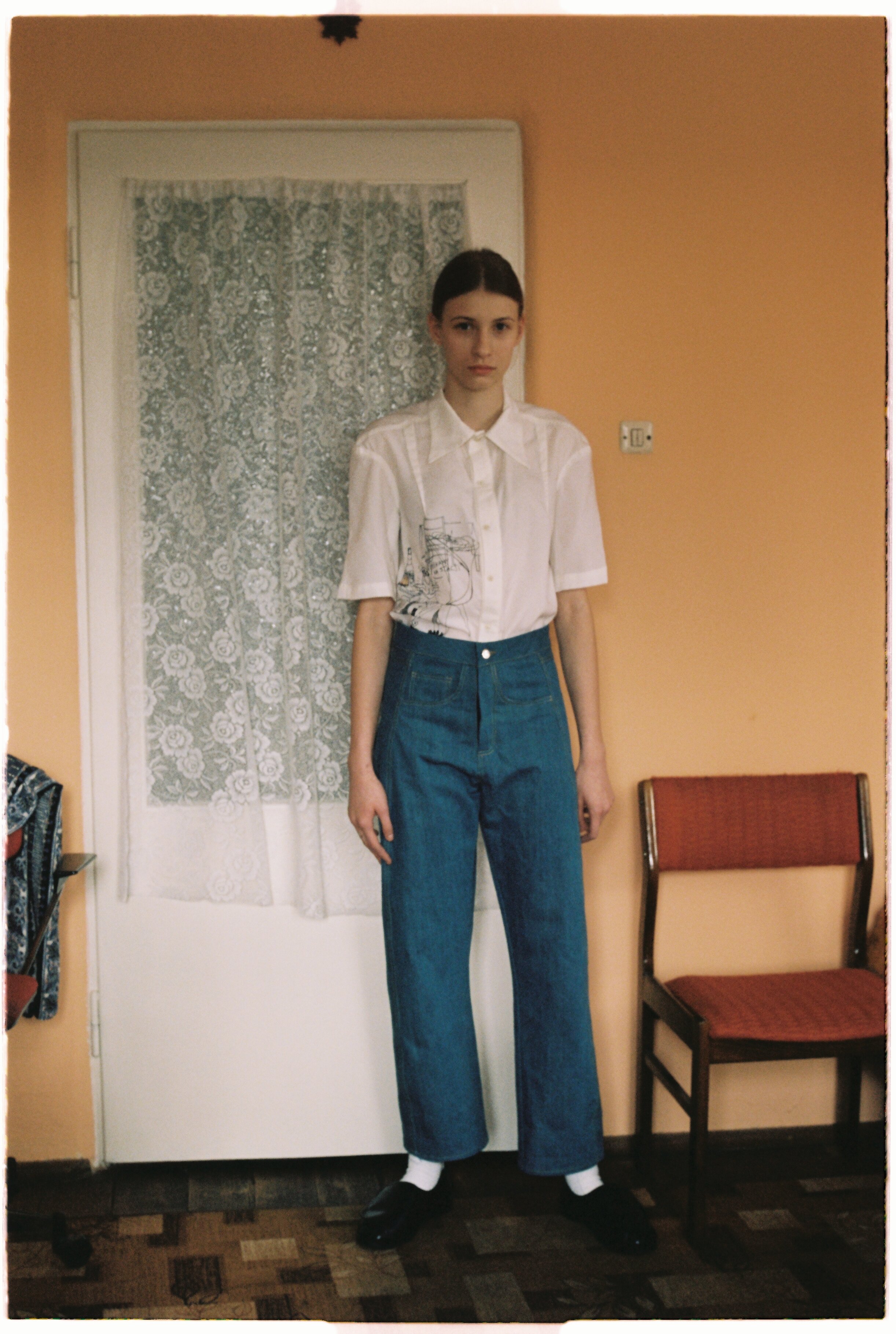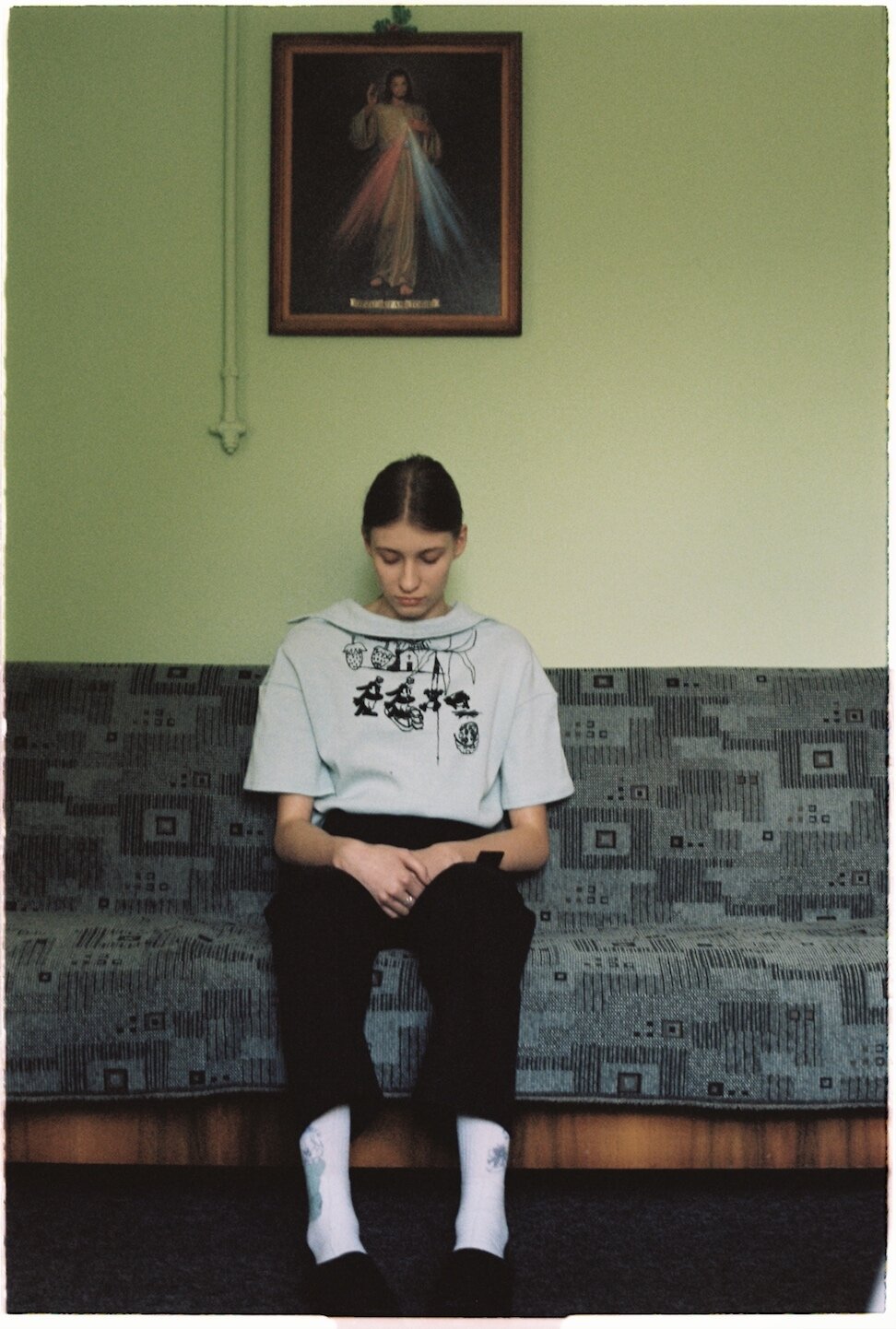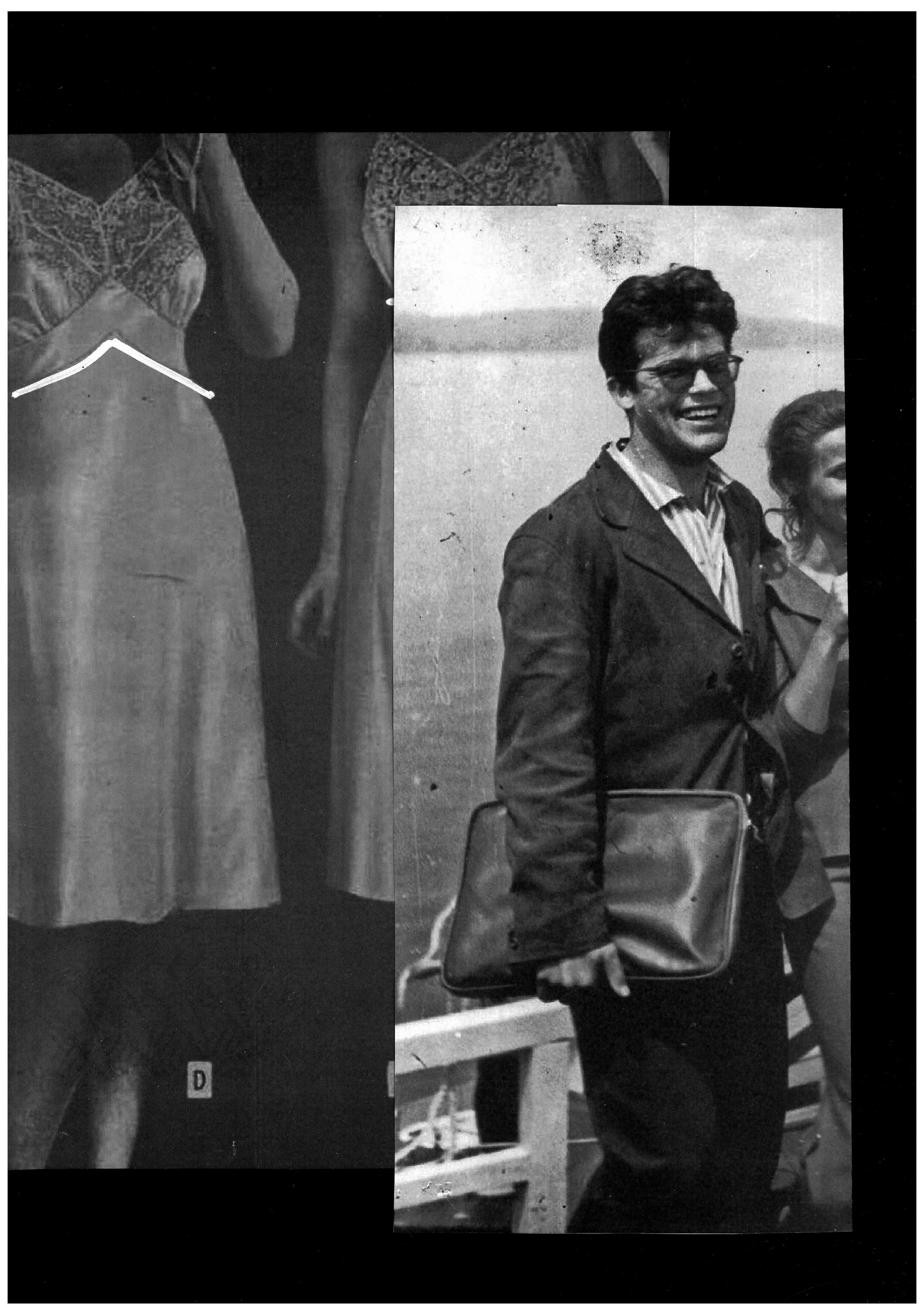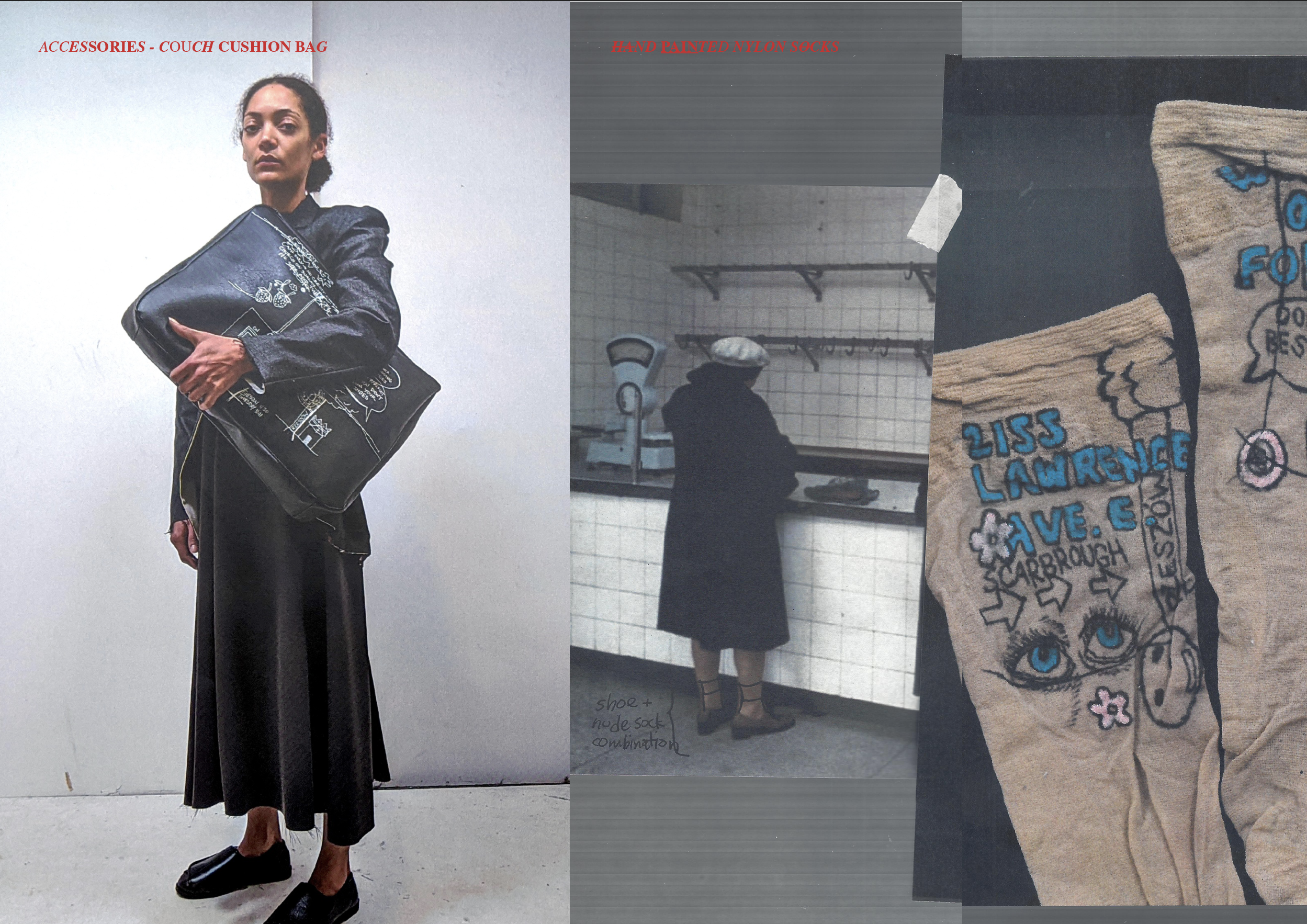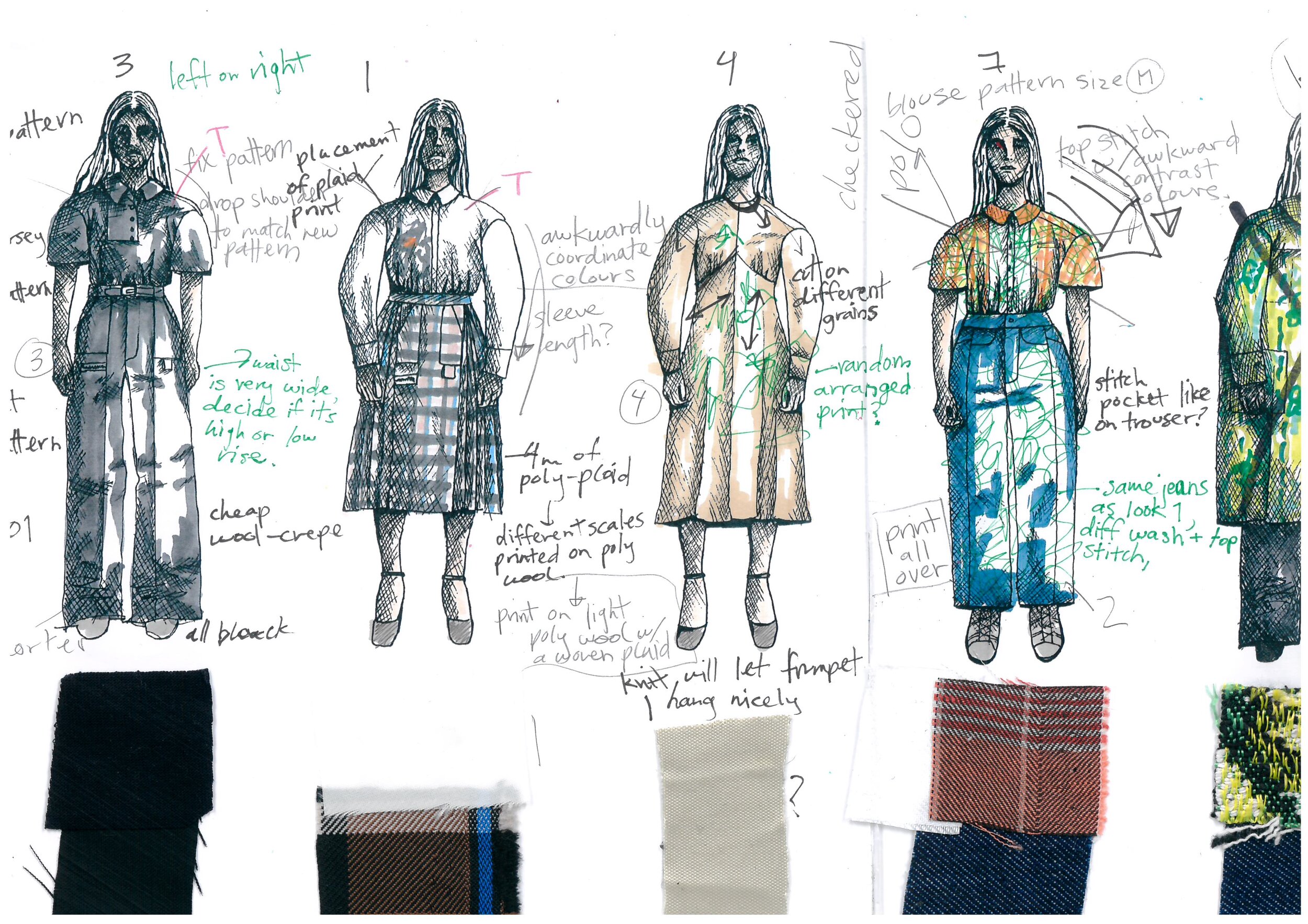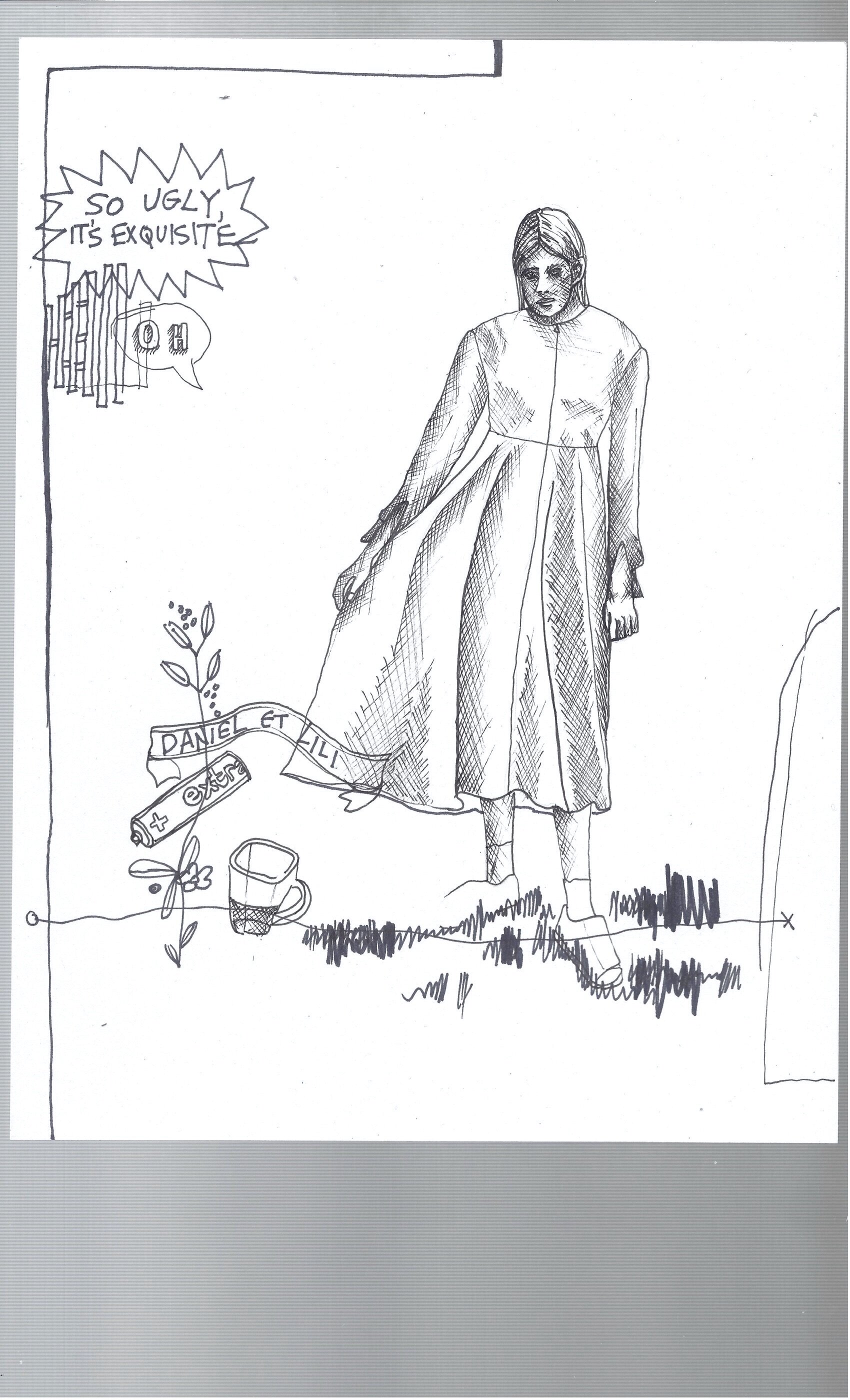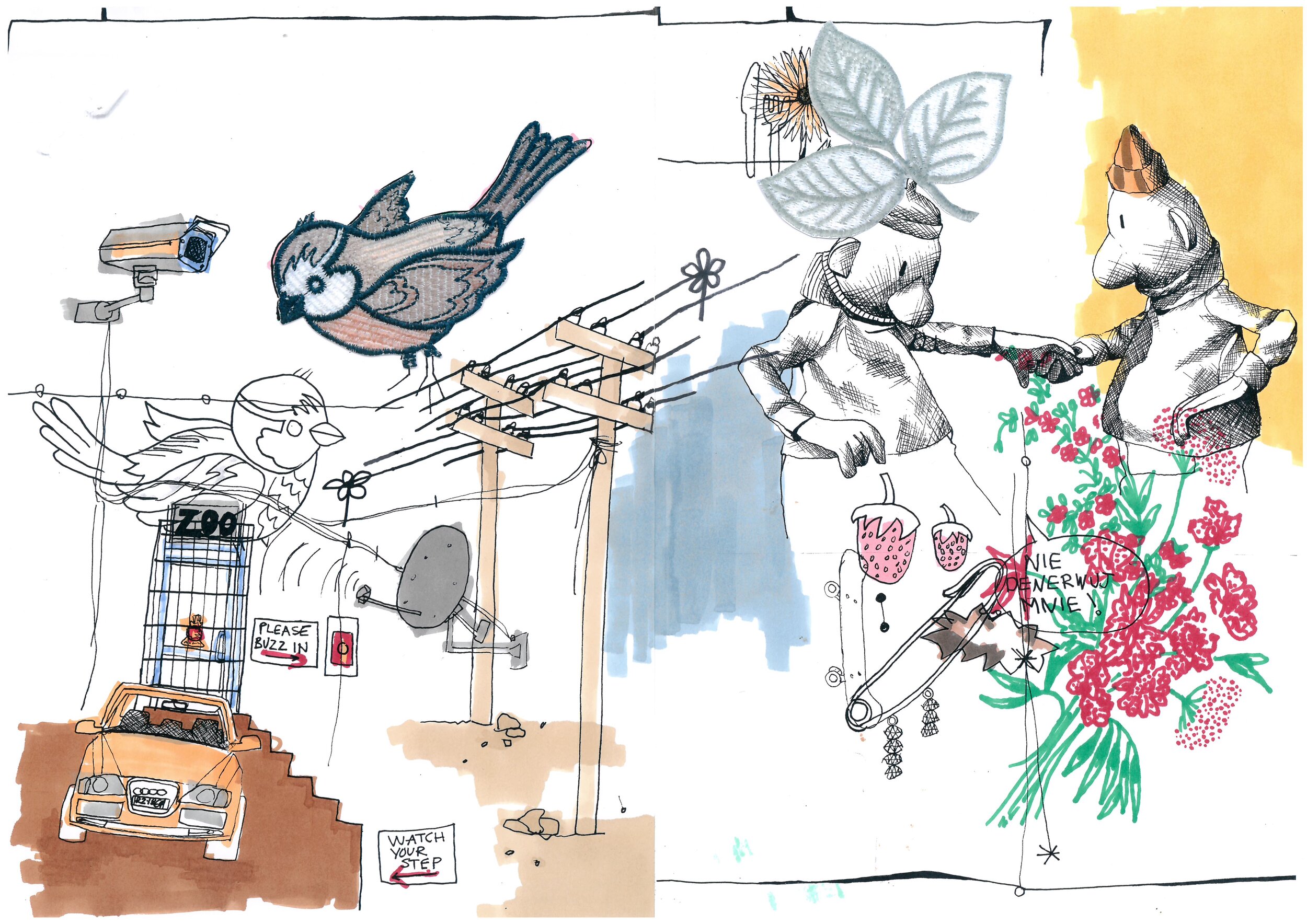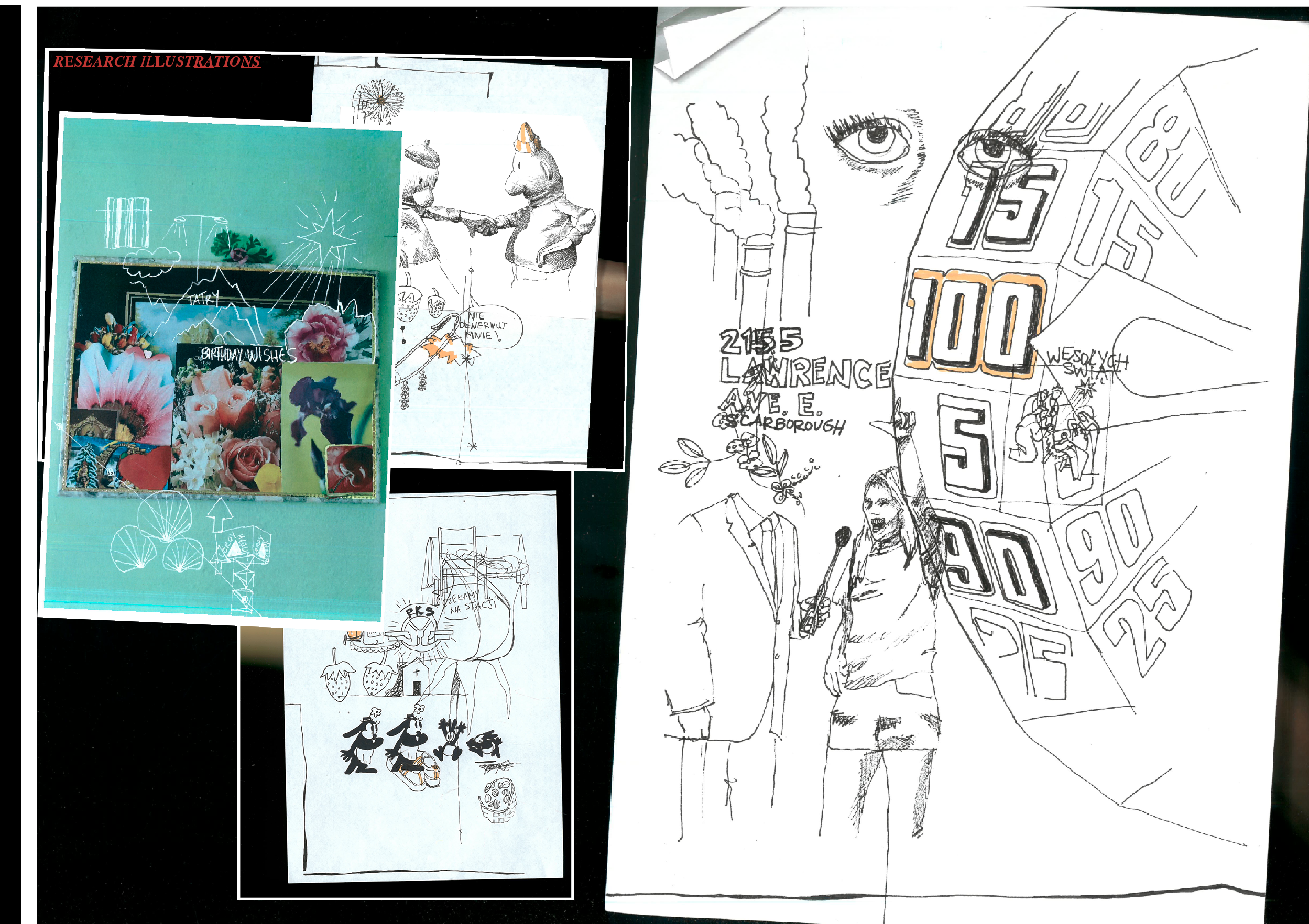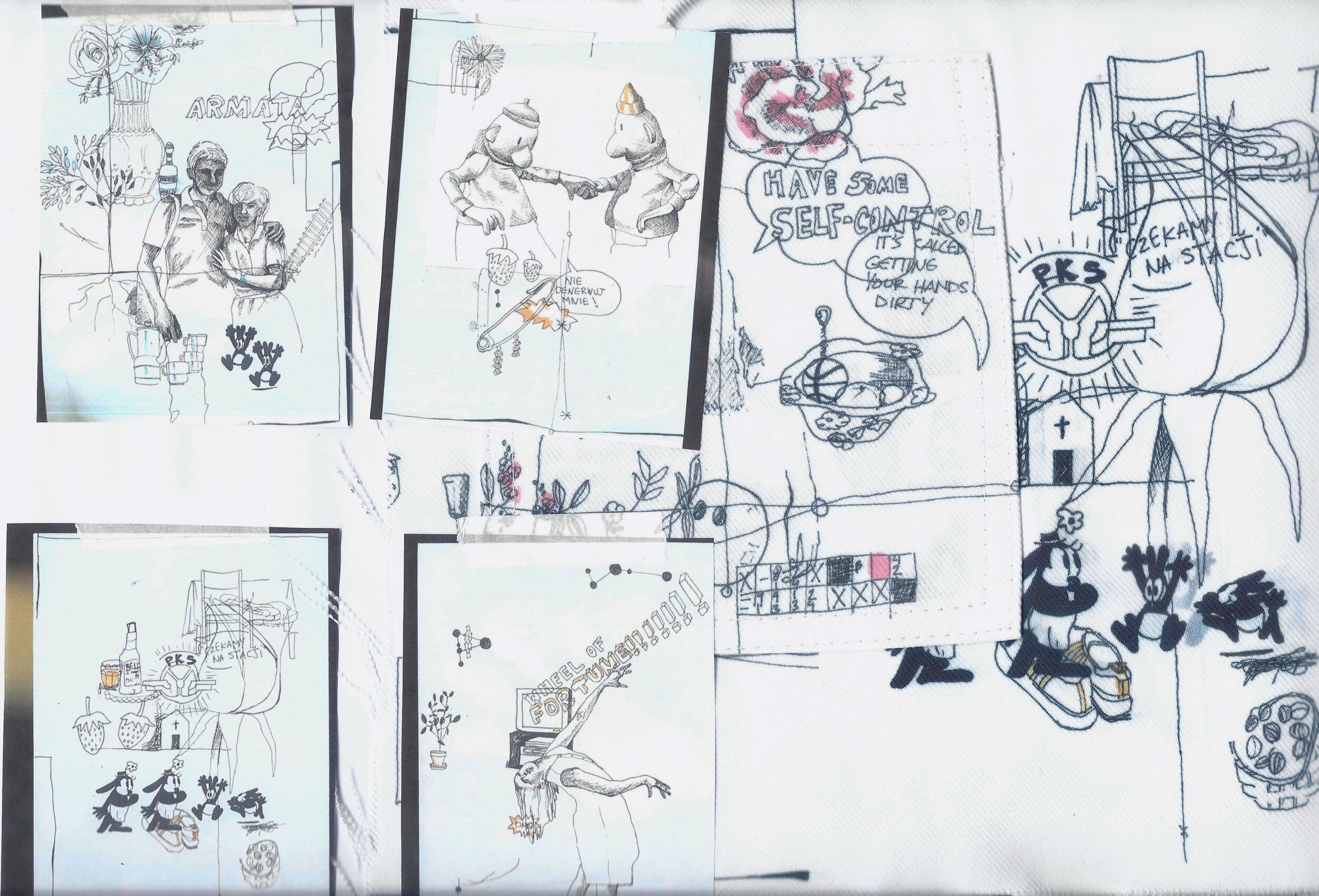Identitat - Soviet era polish fashion through the eyes of its foreign descendant
Her parents emigrated from Poland just as communist era ended. Little did they know that their memories, stories and immigrant nostalgia will materialize in a form of a fashion collection years later.
Alexandra Armata / The Suzanne Rogers Fashion Institute’s Instagram
“the stories they told when I was young highlighted the differences between 1980s Krakow and Toronto. Their stories were fascinating for me, and ended up sparking my interest in ww2 history, brutalist aesthetic and polish cinema. Those elements together with my suburban upbringing in the outskirts of Toronto, collectively contribute to my own perspective and design aesthetic.” says Alexandra Armata, canadian designer of polish descent.
In the beggining it was not certain at all that Alexandra will end up in a creative field. Both her parents worked in practical jobs and she initially felt pressured to land in a “proper job” too. According to her, it is the case for a lot of children of immigrants who fear sacrificing stability and security for a risky creative career. “I think many children of immigrant parents have similar experiences; where they are too afraid to take a risk in their career path, because it can feel like they are disrespecting the sacrifices their parents made to immigrate.”
Eventually her creative passions outweighed her fears, she dropped out of business school and joined BA Fashion Design at Ryerson University in Toronto. While the course taught her a lot on the technical and production side of fashion, she still had her goal fixed on getting into MA at Central Saint Martins and realising her creativity to the fullest. Determined to follow her dreams she moved to London and not only got admitted to the programme but also received a prestigious Isabella Blow Scholarship to support her during MA. In the mean time she got work experience working for a year for Vejas Kruszewski and later interning for design duo Chopova Lowena.
When asked how her polish dna influences her practice she recalls “When I was younger, I was in a Polish Folk Dancing ensemble in Toronto. I think it was a way for parents to help build a connection for their children to their Polish culture and heritage.” Drawing from that experience, one of her early projects explored traditional Polish folk from areas of Lublin and Rzeszow juxtaposed with a contemporary reference of "glamorous" North American dance costumes. It wasn't a successful collection which forced me to revisit it and try to find a different perspective of my ancestry that was more honest and interesting to myself.
It was for her final collection at Central Saint Martins when she revisited the themes of her cultural heritage once again, this time taking a very intimate approach.
Identitat / designer’s portfolio and lookbook images
Collection’s name IDENTITAT was a made up word in attempt to make word identity sounds more polish. She admits that being bilingual she plays with words like that often, constantly shifting and borrowing words between the two languages.
Prior to starting her MA, she went to visit her grandparents farm in eastern Poland, what filled her with inspiration and made her research material truly personal. Alexandra describes her collection as “hardcore normcore”. She looks at communist era ill fitting fashion through nostalgic lens turning what at first glance could be bizzare into moving and beautiful.
Working on her collection, Alexandra relied on cheapest albeit quality materials to emphasise the prevalence of functionality in communist era fashion.
Identitat / family photo album research / research and collection fitting below
Identitat / collection’s line up / sketchbook pages below
Line up’s silhouette is visibly influenced by wedding pictures of her parents, emulating the shape of mum’s modest calf length dress or dad’s three piece suit. Alexandra’s sketchbook is a fair evidence how careful her silhouette investigation was. Every little element from research imagery has been examined and celebrated within the collection’s offering.
Taking a closer look, subtle details suggest some western references designer thread into the work too. Quite unusual front placement of seams was inspired by Amish community, while one of the looks feature a “Canadian tuxedo” – denim-on- denim suit.
Identitat is also a quietly defiant response to modern day consumerism longing for the days when goods were fixed, cherished and kept for life. Alexandra remembers sewing for the very first time under an eye of her dad and how her parents taught her to appreciate and treat clothes with respect.
Identitat / collection’s lookbook / illustrations and design below
Identitat / print design sketches
Pictures taken during the research trip to Poland ended up as starting points for illustrations which translated into effortless and humorous hand painted prints. From floral sketches, through caricatures to private jokes. Those prints carry quite a unique narrative and authenticity. It is no surprise the designer is fascinated with polish poster design heritage.
“For a while now I've been very inspired by the Polish School of Posters. A few artists from that time whose work I really admire are Wojciech Fangor and Mieczyslaw Wasilewski. I think that when you consider the political situation at the time, the artistic style that emerged from the Polish School is quite unique to the world. The artists had to be clever and innovative for their work to be an effective communicator. “
Despite graduating in a midst of the chaos of 2020, Alexandra stays optimistic about the future. She pointed out how the lockdown experience improved her ability to self- discipline and stay productive in the face of uncertainity. After spending few months back home on the suburbs of Toronto during the first wave of the pandemic, she realised how important work environment is and how it affects her creativity. Today, she’s working on exciting collaborations in London, looking out for next opportunities and she hopes to set up her own brand in a future.
If you wish to see more of her work…
Alexandra is part of 1granary x Pinterest showcase here
Follow her next creative steps on her Instagram @alexandraarmata
